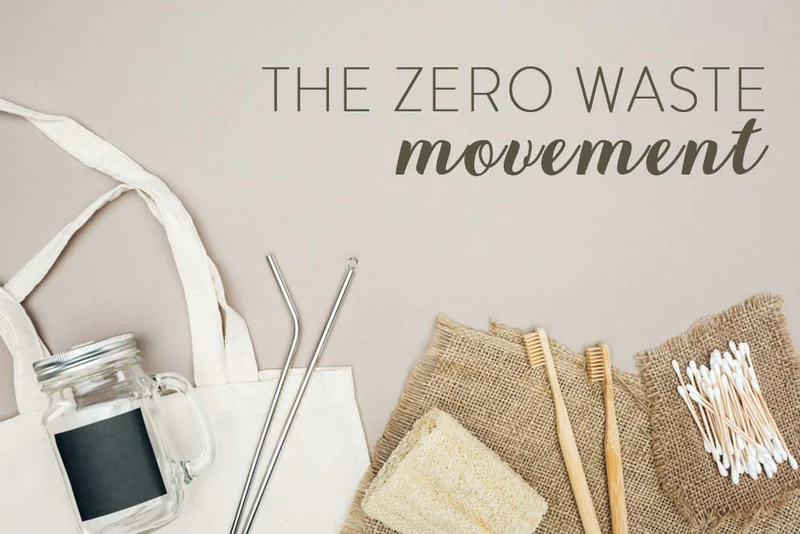Table of Contents
If you haven’t heard the news yet, zero waste is the future. In fact, as the climate crisis manifests itself in increasingly destructive ways, pushing our economy towards more circular alternatives is quickly becoming the defining issue of the Anthropocene.
The zero waste concept is a crucial piece of the sustainability puzzle, relying heavily on the three R’s (reduce, reuse, recycle) while taking manufacturers and multinationals to task to encourage more sustainable manufacturing and products, and practice more responsible business. In short, the zero waste movement is a two-way street, designing unnecessary waste out of existing systems (manufacturers) while ensuring that inevitable waste is recycled in the most efficient way possible (consumers/recycling industry).
However, talking about the zero waste movement is one thing, achieving it quite another, and as we enter the third decade of the 21st century, our waste generation is still growing. Today, millions of tons of waste are sent to landfill each year, and for individuals and business alike, it can be difficult to know where to begin the zero waste journey.

But taking action is now more important than ever, and if we cannot attain true zero waste immediately, we can at least make every effort to work towards it. So, for anyone looking into the zero waste movement, check out these five tips to help you strive for a more circular economy and reduce your waste generation at the same time.
Get Into the Habit of Saying No
Do you need a bag with that? Want extra ketchup? Would you like these free company branded pens that will run out of ink after your first sentence? The simple answer to all of these questions is a firm but friendly NO. Whether you’re an individual grabbing something to eat from your local burger joint or a business sourcing new suppliers, getting into the habit of refusing unwanted items will help you cut down waste significantly.
Sometimes however, you’ll also need to be a little more proactive, keeping an eye on what goes in your bag, what your Amazon package is delivered with, or specifically asking for no unwanted items included in your order. Hopefully, over time, this will push all manufacturers to ditch useless items that are difficult to recycle—or even use with purpose in the first place.

Educate Yourself About Recycling
Despite the fact that the recycling industry has been operating for decades, our reliance on it as an answer to our growing waste generation is highly counterproductive. Recycling must always be a last resort (after reduce and reuse), and educating either yourself or your staff on how the recycling industry works, alongside what can be recycled and what cannot, is crucial to achieving zero waste.
Aspirational recycling is a real issue, and particularly for businesses that need to maintain compliance with local waste regulations, hiring a company to provide detailed guidance can help you work towards the zero waste movement and avoid hefty fines at the same time. It can also clarify the grey areas that the recycling industry is notorious for and help inform buying choices in the future.
Buy in Bulk with Reusable Bags or Containers
Reducing our reliance on single-use packaging across all industries is seen as both crucial to the zero waste movement and relatively easily achievable. In fact, anyone can start today by simply avoiding individually packaged products and buying in bulk wherever possible. Whether its grains, cereals, and pasta, or cleaning products for the office, buying in bulk and reusing containers or bags will allow you to rely less on individually packaged products while also keeping reusable shopping bags and containers in the loop for as long as possible. Additionally, buying in bulk can help you save money in the long run, giving you even more incentive to go big.
Get Creative and Ditch Ready-Made Products
Expensive marketing and flashy advertising have done a really good job of telling us what we need. However, in the time before mega multinationals and branded products lines, people simply used to make their own things. Cleaning products are a great example, and in most cases, a little water, vinegar, baking soda, and essential oil can do exactly the same job. There’s much less packaging and the products themselves are much kinder to the environment.
Make the Most of Your Electronic Devices
E-waste is among the fastest growing waste streams on the planet, and as our addiction to everything digital grows and grows, ensuring we make the most of these highly complex devices is critical. The power that drives these devices is also a finite resource that should be used responsibly. Always try to cut down on your electricity rates to help preserve power. For both individuals and businesses alike, the key is to only upgrade equipment when it is necessary, repair devices that can still be used, recycle electronics responsibly, and even donate unused electronics that still work. Additionally, movements such as the Right to Repair are pushing manufactures to design products and policies that are more responsible and that champion closed-loop electronics.
Have You Joined The Zero Waste Movement Yet?
There are millions of people around the world who are making simple changes in their daily lives to help protect our environment. These five tips are only the beginning… have you started your zero waste journey yet? Let us know where you are in the comments!
